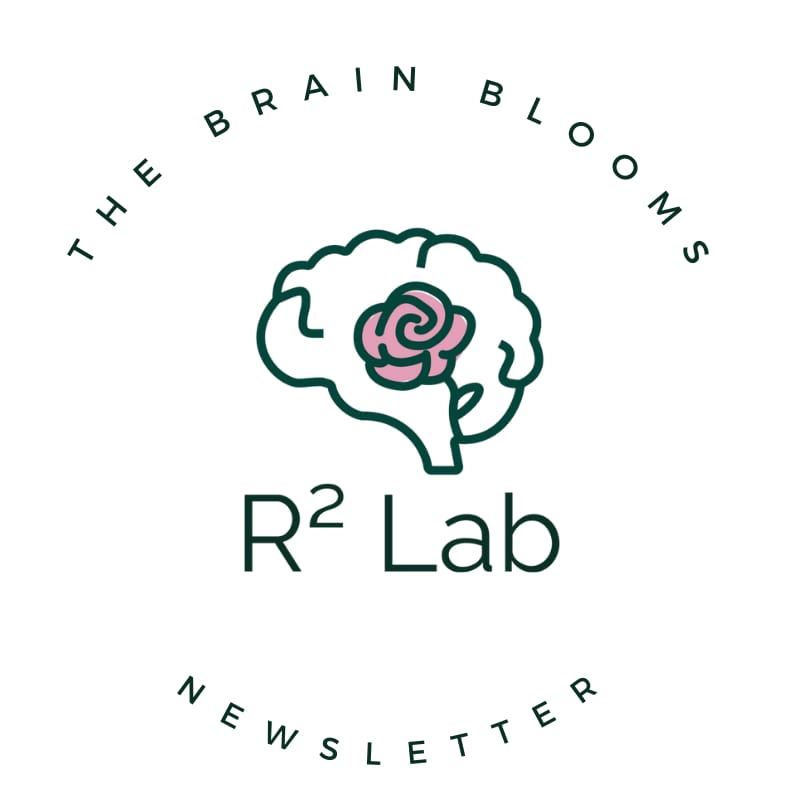- The Brain Blooms Newsletter
- Posts
- Who Let That Actor in the Lab?
Who Let That Actor in the Lab?
You Don't Have to Be a Scientist to Help Science


Who Let That Actor in the Lab?
Whaddup Doe*,
*(a quaint colloquialism from Detroit, Michigan, USA that implies the question “How are you doing today?”)
I’m Edmund Alyn Jones
aka Eddy with a Y
I am the Director of Communications, Marketing, and Outreach for the Ruvvy Resilience Lab.
…
That’s just a fancy way of saying,
I help get the word out on all the cool things we do here at the lab so that people like you, and those in your community, can benefit from the awesomeness of science!
We want to let you know about the amazing discoveries we are making about our brains, bodies, and the Big Emotions they produce.
About me:
I am an actor.
I am a drama teacher.
I am also a marketing dude.
So …
… I imagine you are probably thinking …
… who let the actor into a neuroscience laboratory?
… why is he here?
— and —
… have I seen you on tv?
Answers:
… Dr. Ruvvy let me in. Thanks, Doc.
… I am here because I have had some incredible mental health experiences and I want to help as many people as I can.
— and —
… if you live in the Midwest of the U.S. of A. then, yes, you might have seen me on tv. :)
Actors in Trouble
You’ve probably seen the stories about actors having serious mental health challenges over the years.
Heath Ledger (RIP) as The Joker is likely the most infamous example.
Well …
… in my experience, many actors have had negative responses to the people they portray on stage and in the movies.
When you pretend to be someone that expresses Big Emotions unfortunately your body sometimes doesn’t know that it is make-believe. This can have a negative effect on your brain, mood, and life.
For example:
I played two very emotionally difficult roles back to back …
TRIGGER WARNING
One character lost his best friend to gun violence.
The second character was mentally and physically abused by a close family member.
After dealing with these very serious situations for several months it really started to mess with me.
On top of that I was working long hours.
This led to a long stay in the hospital.
… and a long road to recovery.
But, I did it!
I worked with professionals like therapists, psychiatrists, and coaches.
I got amazing support from family and friends.
I got better.
I also got determined.
I vowed I would figure out a way to prevent what happened to me.
I decided to help others avoid the pain I experienced!
Anybody Know a Good Doctor?
After considering going back to university to learn more about how the brain works, I reached out to several neuroscience departments to get some ideas on next actions.
One name kept popping up …
Dr. Grasser!
yes, that Dr. Grasser, aka Dr. Ruvvy!!!
Long story short, Dr. Ruvvy and I connected and found there was common ground, plus she was going to be building an amazing lab right in Detroit where I lived.
We knew we should work together
and so
… here we are.
You Don’t Have to be Scientist to Help Science
You have a story.
You have thoughts and insights that others can benefit from hearing.
You are unique.
You have a mind and body like no one else, and it they too have things to teach us.
You have skills.
You have special talents that can be used to support great causes.
Look at like this:
Are you good with people?
You could help spread the word about what we are doing here at the lab.
Are you a voracious reader?
You could help us research and share what you learn.
Are you good a making videos?
You could help us tell great stories to share with people the progress we are making in science.
You don’t have to be a scientist to help science.
I’m living proof.
Thanks for reading.
Stay Resilient!
Here’s a great resource:
Visit:

The Anxiety Busting Workbook for Kids
Do what you can, with what you have, where you are.